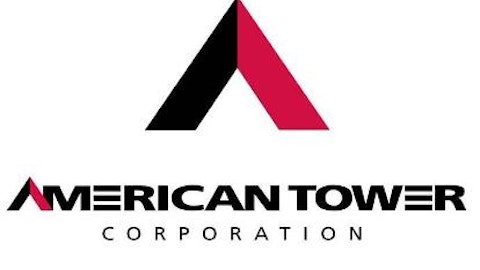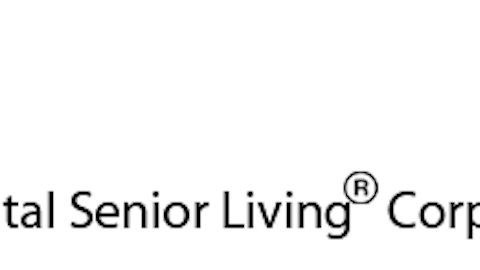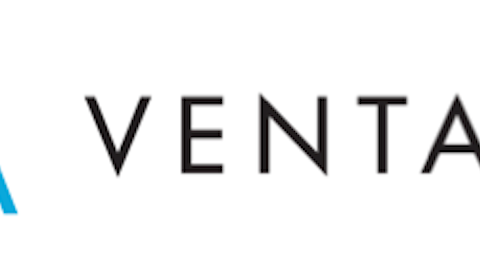
Currently, only 13% of Americans are 65 or older, but by 2030, at least 18% of the population will be 65 or older. The aging out of the U.S. population will change the dynamic of the U.S. housing market in the coming years. Essentially, these people will need somewhere to live, leading to a rise in senior-living communities and skilled nursing facilities. Let’s look at some of the best ways to play this industry.
Health Care REIT, Inc. (NYSE:HCN) was pushed down some 7% last week after announcing plans to offer 20 million shares. The offering will go toward funding a $1 billion investment in a joint venture with Revera to own 47 Canadian senior- housing communities. This will help the company expand its geographical footprint.
The Health Care REIT, Inc. (NYSE:HCN) also pays an impressive 4.7% dividend yield. The nice thing about Health Care REIT, Inc. (NYSE:HCN) is that it has an impressively diverse portfolio of properties that expose it to a number of healthcare sectors. The REIT has a portfolio that includes senior-housing communities, skilled nursing/post-acute facilities, medical office buildings, inpatient and outpatient medical centers and life-science facilities.
Revenue is expected to rise some 40% in 2013 due to acquisitions, with the Health Care REIT, Inc. (NYSE:HCN) having closed some $1.7 billion in new investments. The company also gets around 80% of its revenue from private pay sources, helping minimize the impact from government cuts in reimbursement rates.
Ventas, Inc. (NYSE:VTR) is another leading healthcare REIT engaged in senior-housing facilities and healthcare properties in U.S. and Canada. It operates three segments: triple-net leased properties, senior living, and medical office building operations.
Ventas, Inc. (NYSE:VTR) has a portfolio of some 678 senior-housing communities, 396 skilled nursing facilities, 47 hospitals, 249 medical office buildings, and eight personal- care facilities. The REIT also pays a 4.1% dividend yield.
The REIT should see impressive revenue growth growing forward thanks to the monetization of a number of 2012 acquisitions. All in all, the company added 112 medical office buildings for some $2.7 billion to its portfolio during 2012.
But the real drawback for Ventas, Inc. (NYSE:VTR) is that a large portion of income is derived from government reimbursement rates. This means that if the government decides to cut reimbursement rates through Medicare or Medicaid, revenue will be pressured. The other downside is that a large portion of revenue comes from a few tenants, including some 10.5% from Kindred and 6.4% from Brookdale Senior Living, Inc. (NYSE:BKD).
Non-REIT bet
Brookdale Senior Living, Inc. (NYSE:BKD) is a real estate operating company that owns and operates senior-living communities in the U.S. Unlike the healthcare REITs which mostly lease out their properties, Brookdale Senior Living, Inc. (NYSE:BKD) is an owner, operator, and manager.
The company operates retirement centers, assisted living, continuing care retirement communities and management services, and is the largest provider of senior-living facilities in the U.S. based on total resident capacity.
In 2012, the company announced plans to look at advantageous “structures” going forward; this includes possibly being bought up by one of the major REITs or splitting the business. With a $3.2 billion market cap, Brookdale Senior Living, Inc. (NYSE:BKD) could be a reasonable acquisition for any of the major healthcare REITs.
However, Health Care REIT did blow through the majority of its cash on the $845 million purchase of Sunrise Senior Living. The other option is to split the company into two parts, one operating the communities and the other owning the communities.
More recently, performance looks to be picking up. Brookdale Senior Living, Inc. (NYSE:BKD) posted EPS of $0.03 during 1Q, compared to the $0.09 loss in the same quarter last year. This comes on the back of 4.3% revenue growth. Meanwhile, cash from facility operations was $0.57 compared to $0.48 during 1Q 2012. And Brookdale had average occupancy of 88.5% during 1Q, which was up 0.7 percentage points year-over-year.
Hedgies
Going into 2Q, there were a total of 15 hedge funds long Health Care REIT, Inc. (NYSE:HCN), which was a 12% decrease from the previous quarter. Billionaire D.E. Shaw had the largest position among major hedge funds, worth over $85 million (check out Shaw’s upside picks).
Ventas, Inc. (NYSE:VTR) also had 15 hedge funds long the stock, but saw a 36% increase from 1Q. Holding the largest position was AEW Capital, with 5% of its 13F portfolio invested in the stock (see AEW’s top stocks).
Having some of the most robust interest was Brookdale, which had 37 hedge funds long the stock. Fortress Investment Group had the most valuable position, which accounted for 8.4% of its 13F portfolio (check out Fortress’ top stocks).
Bottom line
With the rising number of baby boomers, all of these stocks are solid bets on the aging population. Both Health Care REIT, Inc. (NYSE:HCN) and Ventas, Inc. (NYSE:VTR) pay an impressive dividend yield, and Brookdale Senior Living, Inc. (NYSE:BKD) is expected to see solid EPS growth over the next five years, with expected growth at an annualized 11.5%, according to analysts. But with its superior dividend yield and recent pullback in the stock, I would opt for Health Care REIT as one of the top bets on the aging population.
The article How to Play the Baby Boom originally appeared on Fool.com and is written by Marshall Hargrave.
Marshall Hargrave has no position in any stocks mentioned. The Motley Fool recommends Health Care REIT. Marshall is a member of The Motley Fool Blog Network — entries represent the personal opinion of the blogger and are not formally edited.
Copyright © 1995 – 2013 The Motley Fool, LLC. All rights reserved. The Motley Fool has a disclosure policy.





